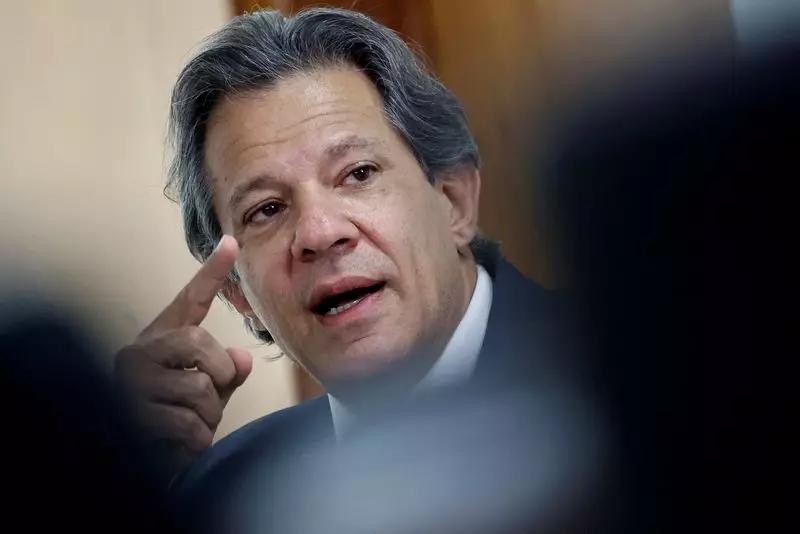In the realm of Brazilian economic policy, the current administration, led by President Luiz Inacio Lula da Silva, is grappling with significant fiscal challenges. The government’s efforts to curb mandatory expenses have recently gained momentum, yet several complexities remain intertwined with this undertaking. This article delves into the recent comments made by Finance Minister Fernando Haddad, highlighting the prevailing issues and the forward-looking strategies of the Brazilian government.
Finance Minister Haddad declared that the primary obstacles hindering the fiscal package’s progress had been addressed. However, the announcement also revealed President Lula’s desire to extend cuts to an additional ministry, potentially complicating the already intricate negotiations. This strategic pivot suggests a deliberation process that prioritizes fiscal responsibility yet introduces uncertainty regarding the timeline for public disclosure of the package.
Moreover, the Brazilian real has faced considerable depreciation against the U.S. dollar, indicating the market’s cautious outlook amid the government’s indecision regarding the fiscal framework. This volatility underlines the urgent need for concrete action and transparency to bolster investor confidence and stabilize the currency.
The political landscape surrounding fiscal policy is equally notable, as Lula’s administration engages with a broad array of ministries—including Health, Education, and Pension—during the package formulation process. With discussions involving over ten ministries, the government is seemingly striving for a comprehensive approach to budgeting, emphasizing inclusion and consensus-building.
However, the lack of specificity regarding which ministry could be affected by the new round of cuts leaves much to speculation. Such uncertainty may not only weaken governmental credibility but also fuel concerns among civil servants and stakeholders reliant on those ministries for essential services.
Despite intentions to unveil the fiscal package post-municipal elections held in October, the government has struggled to communicate a clear timeline. This lack of assertiveness in announcing fiscal measures has led to prolonged apprehension regarding Brazil’s financial future. When pressed about the potential stalling of negotiations, Haddad assured the public that discussions were ongoing and aimed at refining the package to ensure it was comprehensible and conducive to acceptance.
This indicates a dual focus: While the government seeks to address pressing fiscal needs, it also recognizes the importance of public perception and legislative harmony. It remains to be seen whether these adjustments will resonate with Congress and facilitate timely approval of the fiscal measures.
At a juncture where Brazil’s fiscal health is acutely scrutinized, the combined efforts of Lula, Haddad, and their team hold a pivotal role. With discussions set to continue and hopes of presenting the fiscal package to key congressional figures soon, there is cautious optimism for a resolution. However, potential landmines in the political process could hinder progress, creating a need for continual stakeholder engagement and transparent communication.
In essence, while some crucial issues may have been resolved, Brazil’s path to fiscal stability is fraught with challenges that demand strategic navigation, resilience, and an unwavering commitment to economic reform. Only through cohesive action and clear objectives can the nation hope to restore confidence and secure a prosperous fiscal future.


Leave a Reply